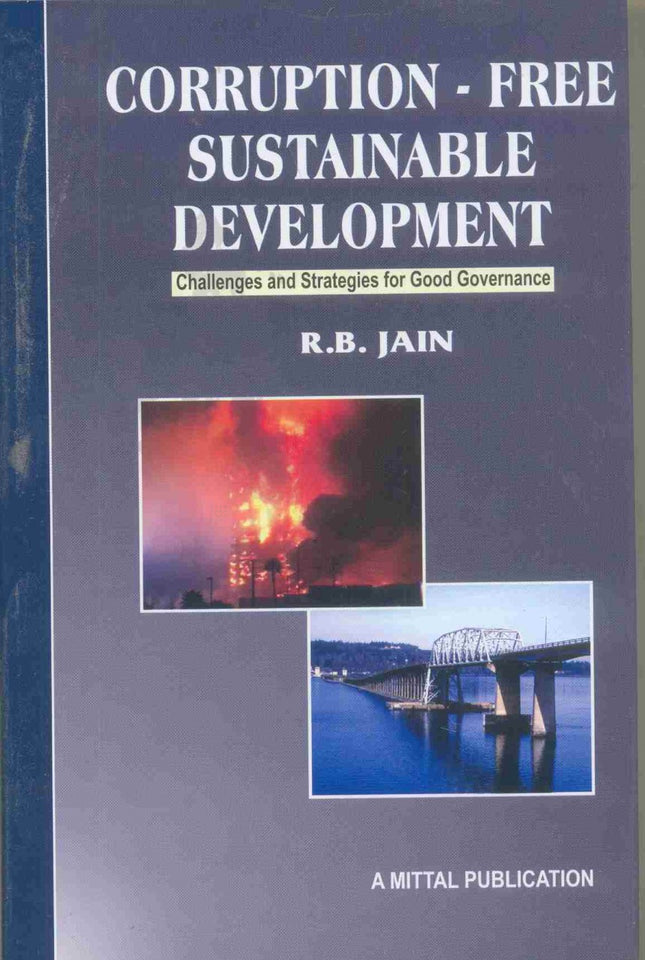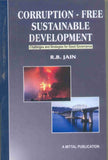Corruption Free Sustainable Development
Regular price
Rs. 595.00
Despite the various discursive and rhetorical appropriation of the term, the concept of sustainable development (SD) and its goals remain contested and elusive. However, in modern times the application of the term has broadened considerably, not only to include the original dominant discourse of the 1987 WCED Brundtland Report of environmental politics and policy, but a strong commitment to a number of normative principles of good governance such as, liberal democracy, political participation, institutional development, collaboration and coordination, political and administrative transparency, and a responsive bureaucratic system, based on the norms of morality, integrity and anti-corruption strategies. Many of the nations, which have adopted the concept of SMART (simple, moral, accountable, responsive and transparent ) governance in recent times have attempted to meet the challenges of changing conceptualization and goals of SD through varied interpretation of this acronym. The present book which is the outcome of the two panels organized by the International Political Science Association’s (IPSA) Research Committee 4 on Public Bureaucracies in Developing Societies at its 18th Congress in Quebec (Canada) in 2000 and another panel at its mid-term Conference organized at Abuja in 2001, attempts to discuss in detail the various issues involved in developing such strategies in the perspective of the experiences of different countries. The various essays included and the book on the whole demonstrates that although different approaches like institutional development, capacity building, strengthening policy-processes mechanisms etc. have been advocated and used by a number of national and international organizations and think tanks all over the world, it is only recently that emphasis on ethical and moral dimensions, achieving transparency and accountability along with integrity have emerged as crucial elements of good governance, which have posed various challenges to modern states in the new millennium. It is now obvious that the phenomenon of corruption cannot be fought and ethical conduct on the part of bureaucracy cannot be ensured simply by reforming internal rules and structures. Innovative activities involving governmental institutions, private corporate bodies and non-governmental organizations have become critical for any integrated anti-corruption programs to achieve sustainable development. It is in this perspective that the present compendium attempts to address the concerns and problems that modern governments face in this millennium, and discuss what steps and strategies could possibly be taken to meet these challenges. Hopefully this compendium will be found useful by policymakers, political leadership, students of public administration and management specialists, and a valuable addition to the existing sparse literature in the sub-field of Good Governance from the perspective of the basic ingredient of public service ethics and integrity as a means to achieve a corruption free sustainable development.
R.B. Jain (b. 1933) is presently a National Fellow of the Indian Council of Social Science Research at the Indian Institute of Public Administration. He is a former Dean of the Faculty of Social Sciences and Professor and Head of the Department of Political Science, University of Delhi, Delhi (India), and Professor and Head of Department of Public Administration at Punjabi University, Patiala and Professor of Public Administration at the Indian Institute of Public Administration, New Delhi. He has held appointments as Visiting Professor at Various Universities in Canada, USA and Germany and has lectured as Guest Professor at a number of Universities and research institutions in all the continents. A former editor of Indian Journal of Political Science, and a member of the Editorial Board of the Indian Journal of Public Administration, he is currently on the editorial board of Environment and Security (Canada), a member of Board of Directors of the Centre for Business and Public Sector Ethics at Cambridge, and a Member of the Executive Committee of the Delhi Regional Branch of the Indian Institute of Public Administration. He has authored/edited 26 books and published more than 150 Articles in refereed journals and compendiums all over the world. His latest books are: Public Administration in India: (2001, and 2002), and Environmental Security in South Asia (Parsi, 2003). He has been a Member at large of the Executive Committee of the International Studie Association, a UN expert on Economic Sanctions, and is currently the President Emeritus of the International Political Science Association’s Research Committee 4 on Public Bureaucracies in Developing Societies. He was also a member of the Advisory Panel on Electoral Reforms and Standards in Public Life of the Government of India’s National Commission to Review the Working of the Constitution and is on the panel of consultants to various foundations and organizations in India and abroad.he has written extensively on Electoral and Party Reforms, Good Governance and Political and Bureaucratic Corruption.
Guaranteed Safe Checkout





